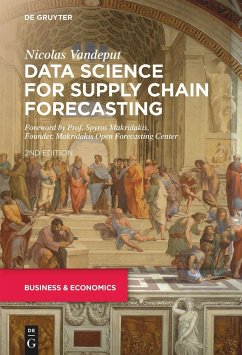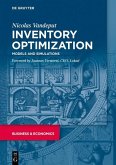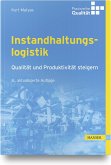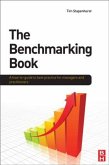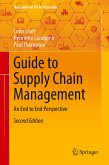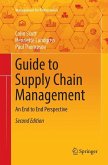Using data science in order to solve a problem requires a scientific mindset more than coding skills. Data Science for Supply Chain Forecasting, Second Edition contends that a true scientific method which includes experimentation, observation, and constant questioning must be applied to supply chains to achieve excellence in demand forecasting.
This second edition adds more than 45 percent extra content with four new chapters including an introduction to neural networks and the forecast value added framework. Part I focuses on statistical "traditional" models, Part II, on machine learning, and the all-new Part III discusses demand forecasting process management. The various chapters focus on both forecast models and new concepts such as metrics, underfitting, overfitting, outliers, feature optimization, and external demand drivers. The book is replete with do-it-yourself sections with implementations provided in Python (and Excel for the statistical models) to show the readers how to apply these models themselves.
This hands-on book, covering the entire range of forecasting-from the basics all the way to leading-edge models-will benefit supply chain practitioners, forecasters, and analysts looking to go the extra mile with demand forecasting.
Events around the book
Link to a De Gruyter Online Event in which the author Nicolas Vandeput together with Stefan de Kok, supply chain innovator and CEO of Wahupa; Spyros Makridakis, professor at the University of Nicosia and director of the Institute For the Future (IFF); and Edouard Thieuleux, founder of AbcSupplyChain, discuss the general issues and challenges of demand forecasting and provide insights into best practices (process, models) and discussing how data science and machine learning impact those forecasts.
The event will be moderated by Michael Gilliland, marketing manager for SAS forecasting software:
https://youtu.be/1rXjXcabW2s
This second edition adds more than 45 percent extra content with four new chapters including an introduction to neural networks and the forecast value added framework. Part I focuses on statistical "traditional" models, Part II, on machine learning, and the all-new Part III discusses demand forecasting process management. The various chapters focus on both forecast models and new concepts such as metrics, underfitting, overfitting, outliers, feature optimization, and external demand drivers. The book is replete with do-it-yourself sections with implementations provided in Python (and Excel for the statistical models) to show the readers how to apply these models themselves.
This hands-on book, covering the entire range of forecasting-from the basics all the way to leading-edge models-will benefit supply chain practitioners, forecasters, and analysts looking to go the extra mile with demand forecasting.
Events around the book
Link to a De Gruyter Online Event in which the author Nicolas Vandeput together with Stefan de Kok, supply chain innovator and CEO of Wahupa; Spyros Makridakis, professor at the University of Nicosia and director of the Institute For the Future (IFF); and Edouard Thieuleux, founder of AbcSupplyChain, discuss the general issues and challenges of demand forecasting and provide insights into best practices (process, models) and discussing how data science and machine learning impact those forecasts.
The event will be moderated by Michael Gilliland, marketing manager for SAS forecasting software:
https://youtu.be/1rXjXcabW2s
"I had a chance to review the manuscript. It is a very good book. For the supply chain managers out there, you should read at least the first few chapters, and then have others on your team read the rest of it and act on it ... you can have close to state-of-the-art forecasts with a minimum of effort.... This book closes the coffin on vendors who are selling only a handful of forecasting models."
--Joannes Vermorel, Founder and CEO, Lokad
"The objective of Data Science for Supply Chain Forecasting is to show practitioners how to apply the statistical and ML models described in the book in simple and actionable 'do-it-yourself' ways by showing, first, how powerful the ML methods are, and second, how to implement them with minimal outside help, beyond the 'do-it-yourself' descriptions provided in the book."
--Prof. Spyros Makridakis, Founder of the Makridakis Open Forecasting Center (MOFC) and organizer of the M competitions Institute For the Future (IFF), University of Nicosia
"In an age where analytics and machine learning are taking on larger roles in business forecasting, Nicolas' book is perfect for professionals who want to understand how they can use technology to predict the future more reliably."
-- Daniel Stanton, Author, Supply Chain Management for Dummies
--Joannes Vermorel, Founder and CEO, Lokad
"The objective of Data Science for Supply Chain Forecasting is to show practitioners how to apply the statistical and ML models described in the book in simple and actionable 'do-it-yourself' ways by showing, first, how powerful the ML methods are, and second, how to implement them with minimal outside help, beyond the 'do-it-yourself' descriptions provided in the book."
--Prof. Spyros Makridakis, Founder of the Makridakis Open Forecasting Center (MOFC) and organizer of the M competitions Institute For the Future (IFF), University of Nicosia
"In an age where analytics and machine learning are taking on larger roles in business forecasting, Nicolas' book is perfect for professionals who want to understand how they can use technology to predict the future more reliably."
-- Daniel Stanton, Author, Supply Chain Management for Dummies

